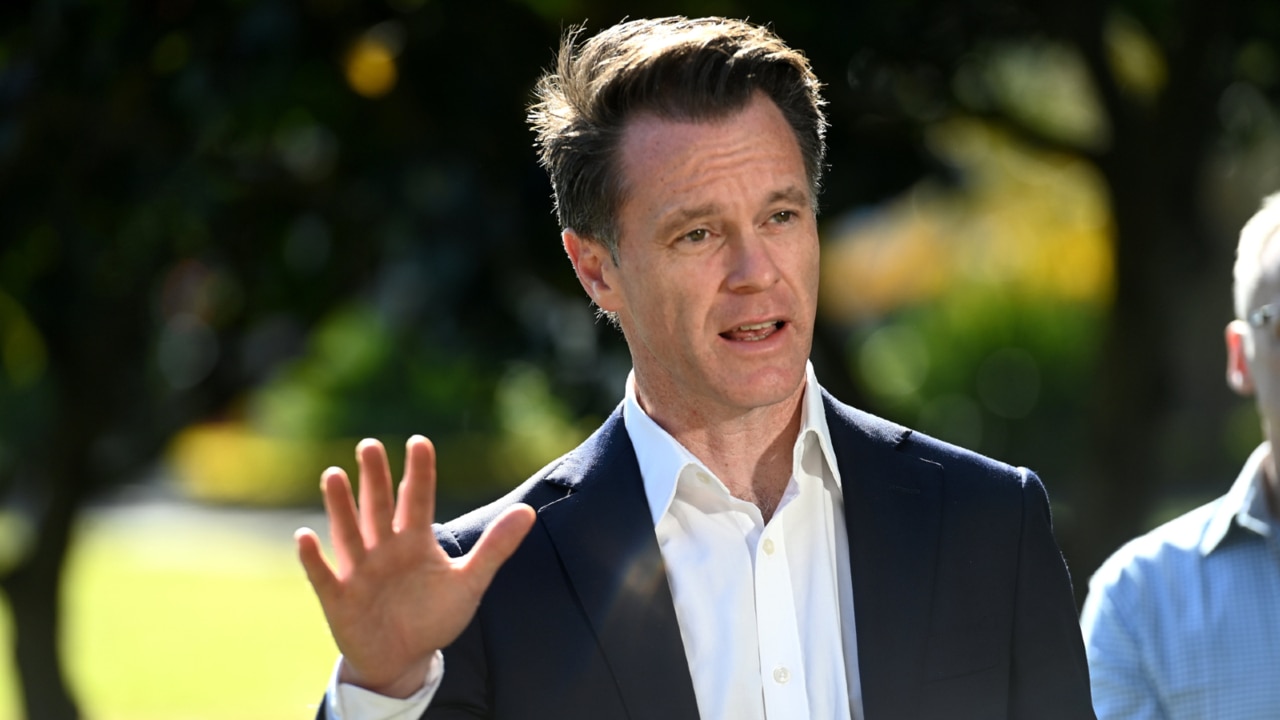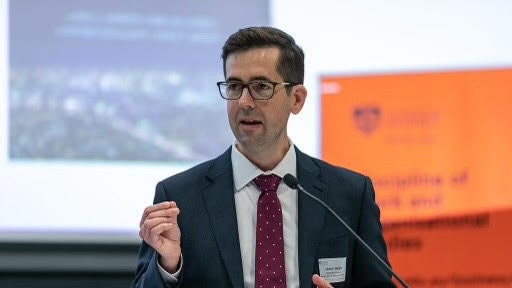Experts say there will ‘naturally be effects’ for other industries following NSW government’s push to work from the office
A new directive to push public servants back into the office could have a flow-on effect in other industries, experts say.

Companies
Don't miss out on the headlines from Companies. Followed categories will be added to My News.
Experts say there will “naturally be effects” for the average worker following a decision to push NSW public servants back into the office.
A directive to push public servants back into the office was issued from the NSW Premier’s Department on Monday, though it’s unclear exactly how many days they will be required to work on site.
“This circular does not strictly prescribe patterns of attendance … However, the starting position is that work is principally done in an approved workplace in NSW,” the directive states, with each agency to come up with its own policy.
Given the NSW government is the largest employer in the country – with more than 450,000 employees as of 2023 – University of Sydney associate professor of work and organisational studies Chris Wright said there would “naturally be effects” for other industries following the decision.
“The NSW government is one of the biggest employers in the southern hemisphere, and it influences what private sector employers do,” he said.
“Businesses typically take stock or take note (of government decisions).”

However, there could be “unintended consequences” if too many businesses followed the decision, he said.
“Remote working has had considerable benefits in terms of allowing people to work who wouldn’t be able to as readily,” he said.
“If too many private sector businesses follow suit this could have some unintended consequences economically by reducing the participation of workers who feel they’ve got to come into the office everyday and who aren’t able to.”
Australian Federation of Disability Organisations chief executive Ross Joyce said the Covid pandemic certainly brought forth more opportunities for people with disabilities to acquire employment, and he hoped this would be taken into account by both the state government and private sector businesses when making decisions about remote work.
“We understand that (working from home) would be an impact on other businesses and small businesses in the CBD where government offices are located … but it comes back to let’s do it (push to more office work) in a considered way, let's take into account the needs and requirements of people with disabilities,” he said.
The pandemic played a significant role in the rise in remote work, with attitudes seeming to soften when it wasn’t possible to work on site.

However, the push to return to the office reflects a “pre-Covid mindset”, according to Mr Wright, with the state government’s decision coming as a surprise to him.
“I think it reflects a pre-Covid mindset because it fails to recognise that remote working can have considerable benefits and that the infrastructure has been put in place to enable remote working much more extensively and effectively than in the past,” he said.
“I feel this is another factor, the government might be shooting themselves in the foot here – it might be limiting its ability to attract and retain employees that the government and state need to have a successful public service.”
However, the property sector has been screaming out for a return to the office as Sydney CBD vacancy rates remain high at 11.6 per cent, according to the Property Council of Australia’s latest office vacancy data.

Property Council of Australia NSW executive director Katie Stevenson welcomed the government’s decision, calling it the “shot in the arm we need to kickstart a vibrant, thriving city, ready for fresh investment and growth”.
While this decision is “symbolically huge”, University of Technology associate professor of workplace and business law Giuseppe Carabetta said employers had already begun mandating office work before this announcement.
“Symbolically, it’s huge, but also I’ve got to say I’m not too surprised,” Dr Carabetta said of the state government’s decision.
“Since last year I don’t think we’ve seen an upsurge overall, but what we have seen is the number of employers who are mandating five days a week (in the office) – so essentially full time – that has gone up significantly.”
The number of Australians with flexible work-hour agreements has fallen by about 3 per cent from August 2021 to August 2023 – from 36 per cent to 33 per cent, according to the Australian Bureau of Statistics.

The amount of people regularly working from also fell by 3 per cent during that same time period, from 40 per cent to 37 per cent.
Dr Carabetta said evidence suggested employees were their happiest when working three or four days in the office rather than five, and if a change in working arrangements was on the way, employers should at least give employees a reason.
“I think it goes beyond giving them chocolate – we have biscuit days at work now,” he said.
“I think it goes beyond that, but just making it worth the employees’ while so they’re not dragging themselves in.
“It’s the idea of if you’re going to build a culture, if you want to get people to communicate, get them to communicate – if we’re all going to sit by our laptops, what’s the point?”
Dr Carabetta also noted that while employees were required to follow “lawful and reasonable” directions from employers, under the Fair Work Act national employment standards, employees who had been with a business more than 12 months had the right to request remote working arrangements if they fall under six categories: parents with children at school age or younger, carers, people with a disability, people over the age of 55, pregnant people or those experiencing domestic violence or who are caring for someone experiencing domestic violence.
Originally published as Experts say there will ‘naturally be effects’ for other industries following NSW government’s push to work from the office


